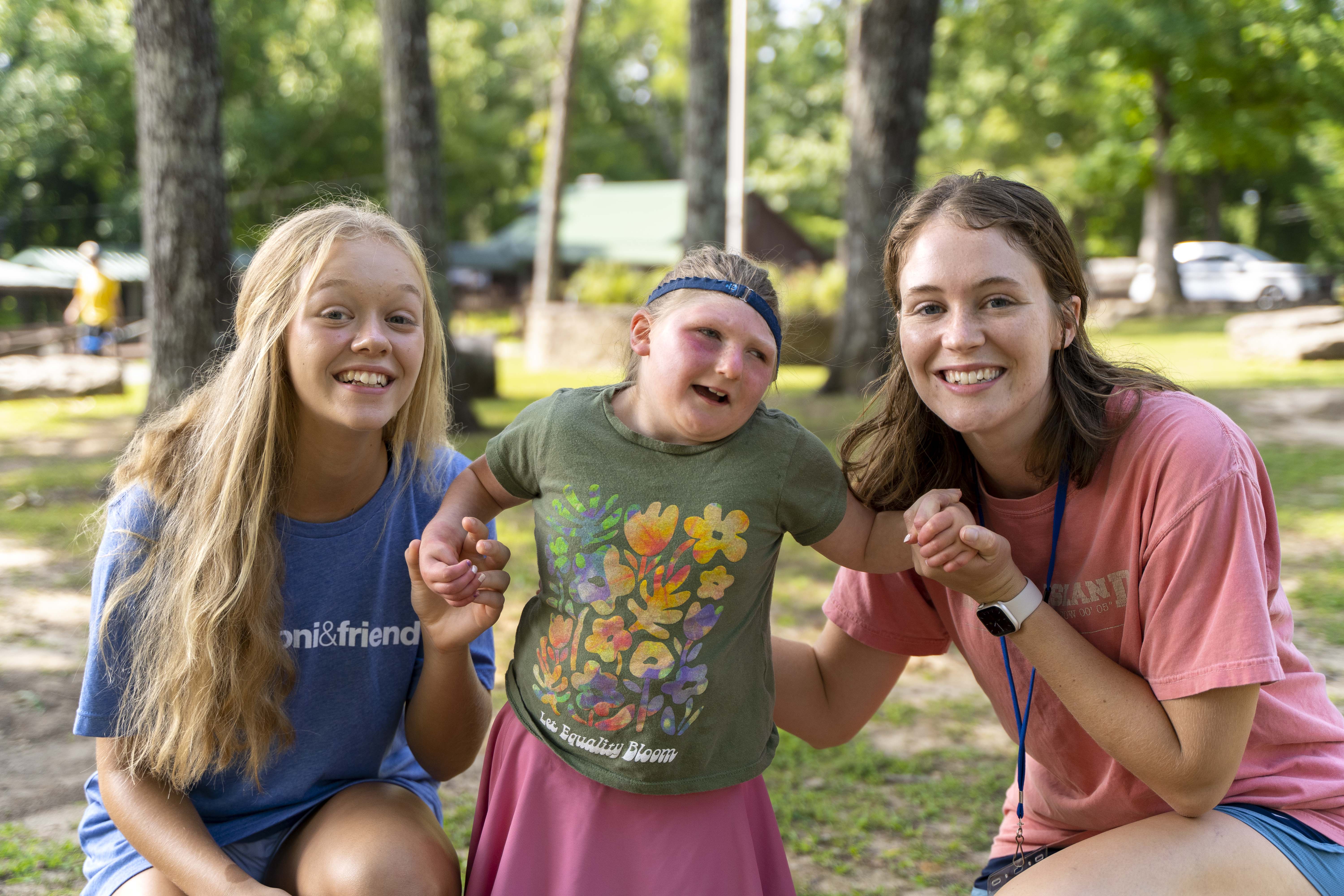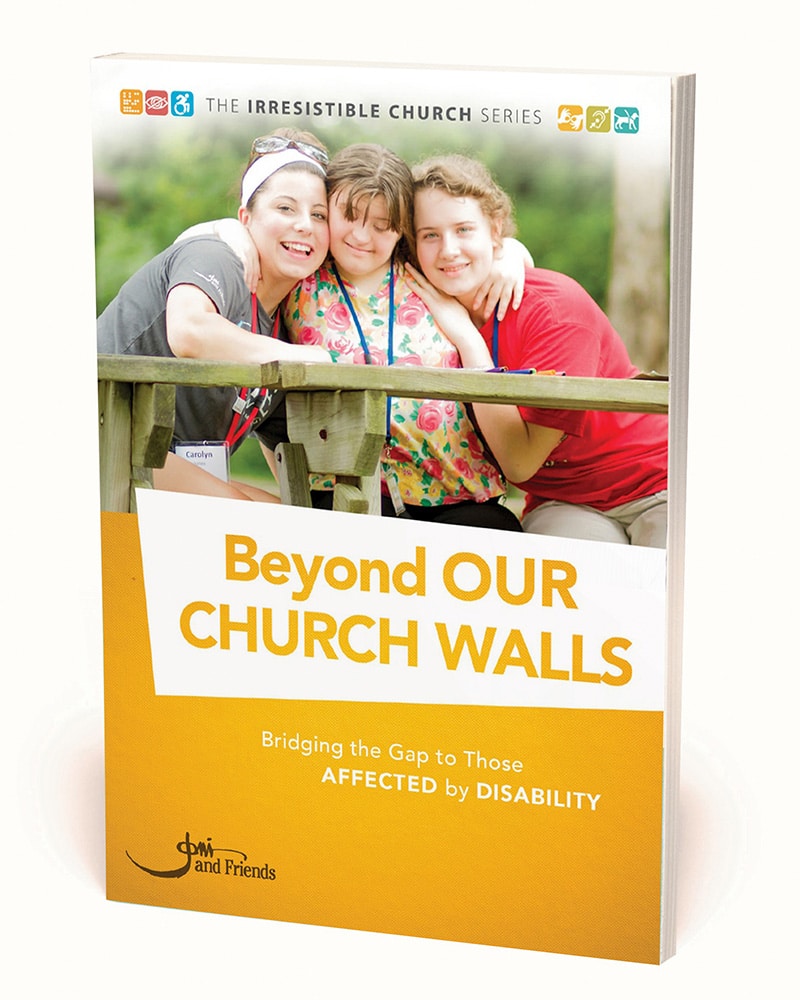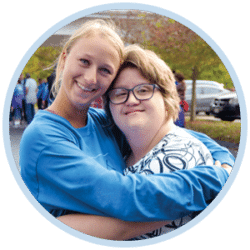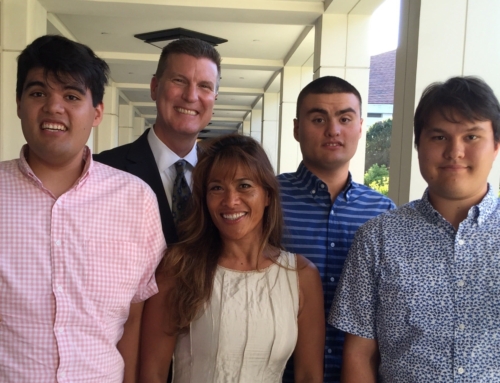How to Reach the Disability Community: Providing Gospel-Centered Care

“Our church wants to include people with disabilities, but we don’t know how to reach the disability community.”
Perhaps you are reading this because you want your church to grow in its ability to welcome and embrace people living with disability. That’s good! But first, we need to define what it means to include people with disabilities.
Recognizing that “disability ministry” is first and foremost ministry is essential.
While “disability ministry” might add any number of features or programs, it can never be less than something that facilitates the discipleship and spiritual formation of people living with disability.
“Disability ministry” must not be thought of as a novel, optional, or segregated ministry (like a food bank, daycare, or clothing drive), but as a methodology that allows existing ministry to be accessible for everyone. The fundamental needs of those with disabilities and “special needs” are not any different from anyone else.
They need community, acceptance, and most fundamentally the gospel.
When planning outreaches focused on people living with disability, it is important to also plan for welcoming and including these same people in your weekly worship services and ministry events.

It is not uncommon for a church to host a special event (such as a special needs prom, respite event, or support group) without first preparing their church to receive those they invite. In the same vein, many churches are confused when they have a huge turnout for an event that fails to translate into ongoing relationships.
For tips on how you can prepare your church to be a disability friendly community, read “How Can People with Disabilities Fully Engage at Your Church?” and “The 5 Stages of Changing Church Culture to Embrace Special Needs Families.”
There’s no one-size-fits-all approach to outreach. But as you consider how to make your church known as a place of welcome for people with disabilities, here are a few tips to consider…

Make Your Outreach Relational
The easiest way to form new relationships is through existing relationships! Just think about how evangelism works; Jesus calls those he has relationship with to introduce him to others. Jesus knows you, you know someone else, and now that someone else knows Jesus, too. Begin within your own church; reach out to those affected by disability already in your church.
People with physical disabilities are easy to identify, but what about those silently carrying a hidden disability like chronic pain or mental health issues? Seek to understand the struggles and successes they have experienced in your church.
Also consider who else is affected by disability: family members, caregivers, neighbors, coworkers, clients, and friends of those with a disability. Purposefully letting your church family know how your church has prepared to welcome people with disabilities will encourage those already in your church to share their needs and confidently invite others.
Provide a Welcome Sign for Seekers
Seekers may be Christians looking for a church home or non-believers who are curious about God. Both are looking for a church. While many people searching for a church may simply “try out” a new place of worship, people with disabilities may do a little research first.
They may look ahead of time for wheelchair accessibility, programs for children, or a sign-language interpreter. Does your website clearly welcome people living with disability?

Simply adding explicit terms like “disability,” “autism,” “deaf,” and “wheelchair” to your website provides a digital “welcome sign” for people of all abilities.
Describing your accessibility in vague terms or catchy names may cause someone to miss that your church has a place for them. When people are accustomed to finding closed doors and lack of access, we need to be clear that they are welcome and wanted!
Seek the Lost
In addition to welcoming those looking for a church home, how do we seek out those who are yet to know Christ as their Lord and Savior, or those affected by disability who may have given up on looking for a church home? When going out to your community to find people with disabilities, keep in mind that people in the disability community may have experienced rejection and marginalization.
They have no reason to expect the Church to be any different. In some cases, they may have previous negative experiences with church that they carry with them. With this in mind, we must approach this community of people with humility and a servant’s heart.
This list is far from exhaustive, but here are some keys ways to start developing relationships in your community:
- Find disability providers in your community, letting them know about your church’s desire to serve their clients. Picking up the phone is easy!
- Build relationships by serving the disabled where they already gather; places like day programs, after-school programs, respite programs, assisted living facilities, rehabilitation centers, YoungLife Capernaum groups, etc.
- Grow relationships as a learner. Remember, people are more than their disability; we serve individuals, not a diagnosis. Find out about a person’s goals, hopes, dreams, struggles, and barriers to belonging. Do not assume that someone’s disability is the most pressing issue on their mind, or the most important thing about them.
- Make invitations to accessible events prepared to accommodate their needs: a church picnic, worship service, children’s ministry event. The power of saying “you are wanted here” is monumental.
Conclusion
Your desire to reach out to the disability community reflects Christ’s heart and mission. Christ came to seek and save the lost. God is already seeking those with disabilities, and as our churches mirror that, we become more like Christ. So, before anything else: pray! Pray for God’s heart and blessing on your ministry endeavor.
Beyond Our Church Walls
Do you want your church to be a place of belonging? An Irresistible Church is an authentic community built on the hope of Christ that compels people affected by disability to fully belong.


Connect with a Ministry Mentor
You can contact a Joni and Friends church training mentor directly at [email protected] or by calling 818.707.5664. We’d love to walk with you as you seek God’s heart for people with disabilities in your church.





